Where the Internet is stored, 10 super-powerful data centers
Categories: Design and Architecture | Technology
By Pictolic https://pictolic.com/article/where-the-internet-is-stored-10-super-powerful-data-centers.htmlWe are used to the fact that data is stored in the "cloud" — this is a collective metaphor for the technology underlying thousands of services. However, data centers, thanks to which we have the opportunity not to take up space on a computer's hard drive, can be called the most fortified and resource-intensive buildings of our time. Each of them is a fortress with servers, consuming as much energy as a small city. We have selected 10 of the largest, most beautiful and "clean" data centers, each of which is a real work of art by engineers.
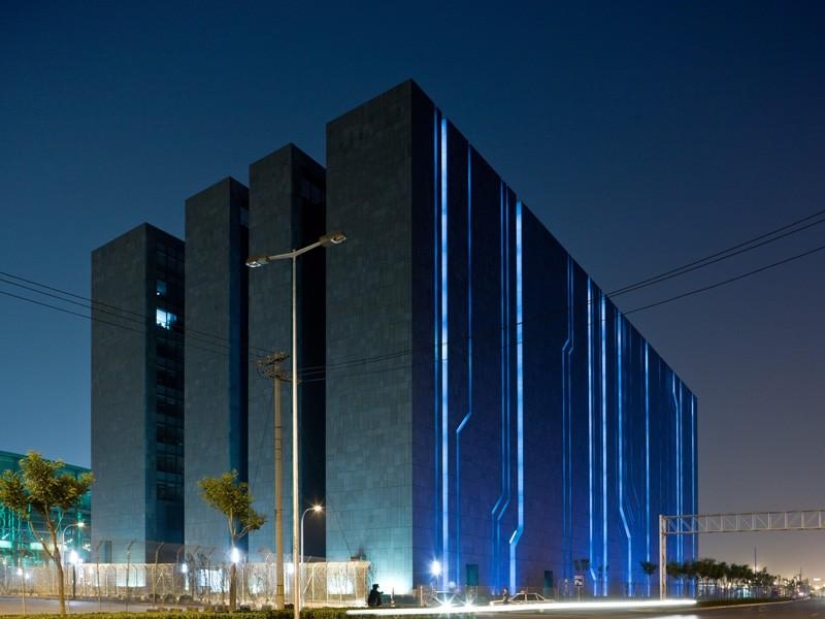
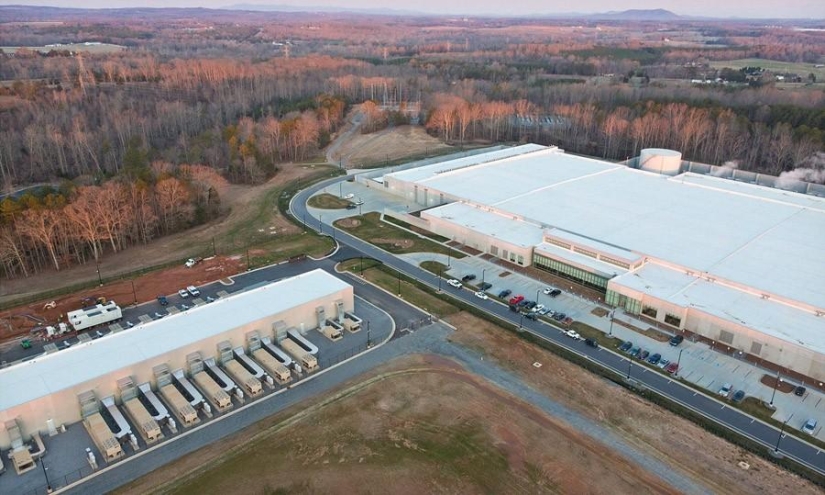
11-storey data center building in Beijing was built for the 2008 Olympics by the architectural bureau Studio Pei-Zhu. It combined the functions of an information center and a technical management center for Games. In addition to the impressive computing power, the architectural solution of the building is interesting. The concrete cube seems to float on a smooth water surface, and its walls are cut with light channels resembling a barcode. In addition, the architects had a task to make the center the embodiment of the concept of the "Green Olympiad". In the interior and exterior lighting, only LED lamps are used, using 60% less electricity than conventional ones, and a special glass wall prevents the penetration of heat inside, reducing cooling costs. After the closing of the sports competitions, an interactive museum of modern technologies was opened in Digital Beijing.
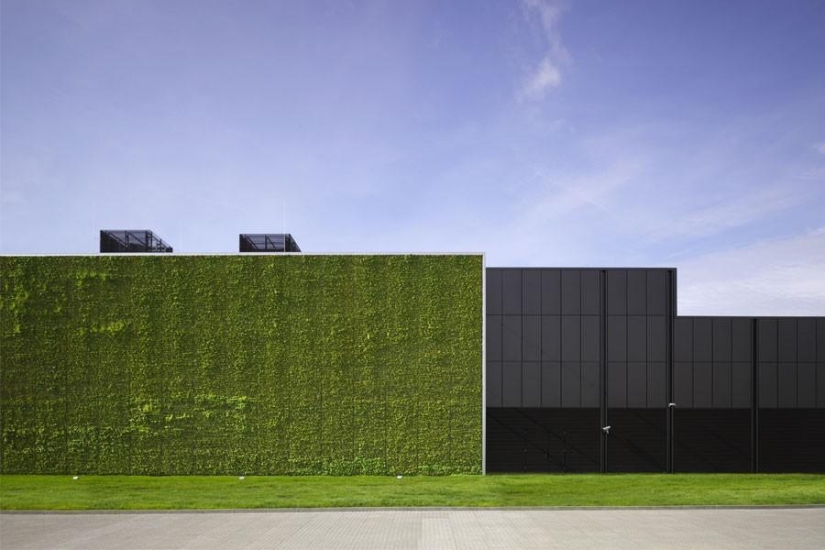
Apple is constantly reducing energy costs and reducing the harm that the company's data centers cause to the environment. According to Apple reports, since 2013, 100% of their data centers and 94% of their offices have been powered by renewable energy sources. At the same time, the company continues to move towards greater independence from electricity suppliers. The data center in Maiden is surrounded by 400,000 square meters of solar panels that generate 42 million kilowatt-hours per year. This is enough to provide electricity to 60% of servers and cooling systems, and the rest of the energy is generated by a nearby biofuel plant.
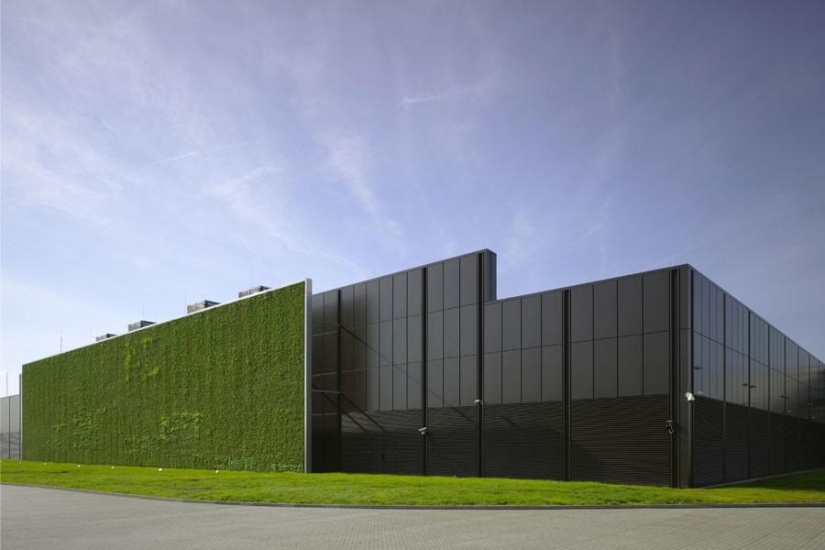
In 2008, when the Citigroup data center was built in Frankfurt, it was considered the "greenest" in the world. Citi Data Center became the first building in Germany to receive a platinum LEED certificate. This means that the construction combines the efficient use of energy, water, light and air, it is comfortable for employees, is well integrated into the transport infrastructure, and also has minimal impact on the surrounding areas.
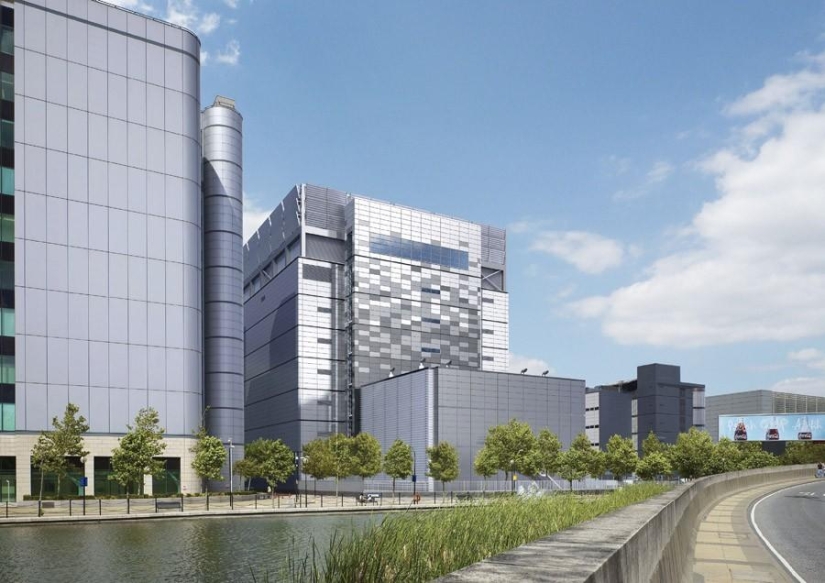
In addition to all this, the data center, designed by Arup Associates, also looks beautiful: one of the facades is covered with real grass (it collects rainwater), there is a lot of greenery in the complex and there are even indoor parks for employees.
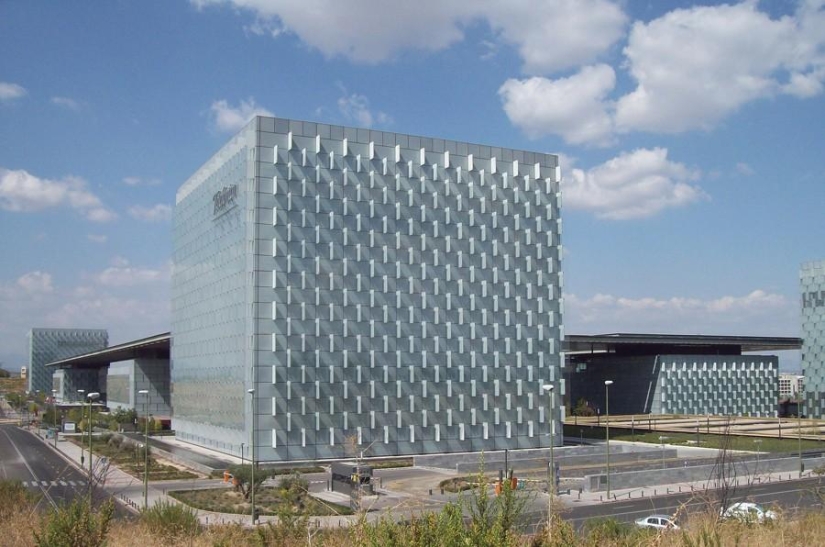
The British company Telehouse leases server capacity to those companies that do not need their own data centers. For Telehouse, data security and one hundred percent reliability of equipment are important, but the company's representatives also think about the environment. There is no place for solar panels or wind turbines near the data center located in the London Docklands district, so Telehouse buys electricity. Since 2011, 100% of this energy has been supplied by SmartestEnergy, a company engaged in the purchase and supply of renewable energy, so that all Telehouse West equipment runs on the energy of the British sun, wind and waves.
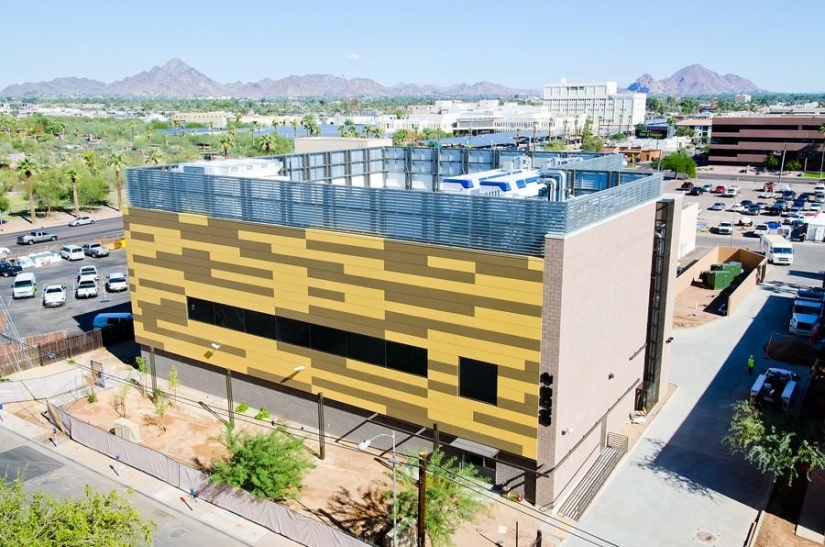
In the city of Alcala de Henares, on a plot the size of eight football fields, Spain's largest telecommunications company, Telefonica, has built a data center that provides its cloud services in Spain, England and Germany. There are also servers that are rented out — they occupy several tens of thousands of square meters. It is the largest data center in Europe and the third largest in the world. The building has already received a LEED gold certificate confirming the highest quality and reliability of data center services. Structurally, the building consists of several modules, each of which is absolutely non-volatile.
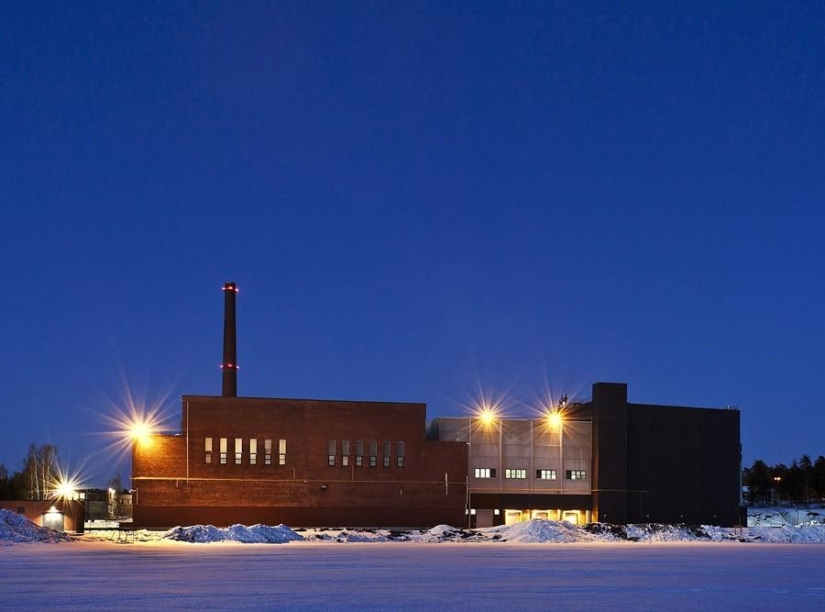
"If we could do it here," says Dean Nelson, eBay's top manager responsible for building a data center in the Arizona Desert, "we can do it anywhere." Indeed, building a data center that needs to be well cooled in one of the hottest places in the country was a risky idea. Usually servers function normally at temperatures from 18 to 26 degrees above zero Celsius, but eBay engineers managed to make the data center work even at +46. It is so hot inside the data center that water can be used for cooling, the temperature of which reaches 28 degrees, and it will still cool the equipment. But the most innovative development used at this facility is containers resembling cargo containers in which equipment is placed. The energy efficiency of such a container reaches 95%, which means that almost all the energy sent to it from the power plant is spent on maintaining the functioning of the server, and not on cooling.
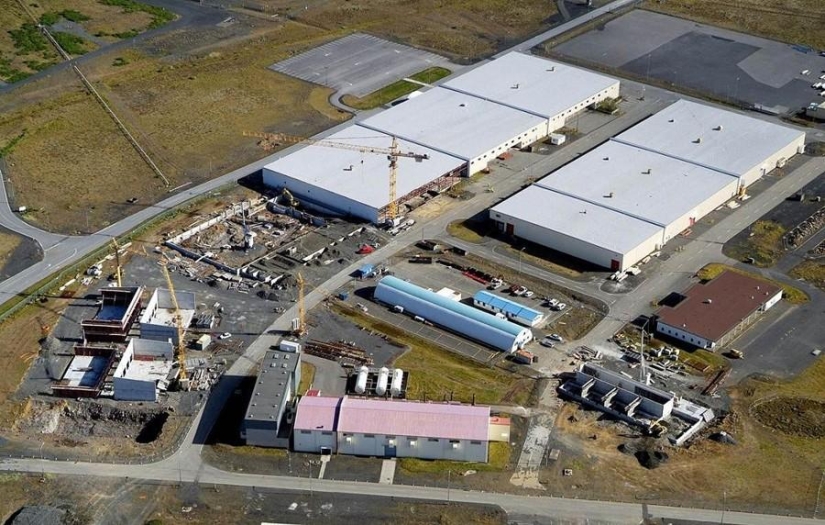
Google has no equal in data processing and storage: the data centers of this giant of the Internet industry are scattered all over the world, and almost all of them comply with "green" standards. However, the data center located in the Finnish town of Hamina on the Baltic Sea coast deserves special attention. Some of the servers are located in the building of a former paper mill, and the second is in a restored machine room, once designed by the great Finnish architect Alvar Aalto. Google spent $ 350 million on the purchase and reconstruction of these buildings — this is a record amount, because the construction of, for example, the already mentioned Telefonica data center in Alcala cost 200 million. The icy waters of the Gulf of Finland are used for cooling here — this is what the paper mill building was needed for, because a huge amount of water is also used in paper production.
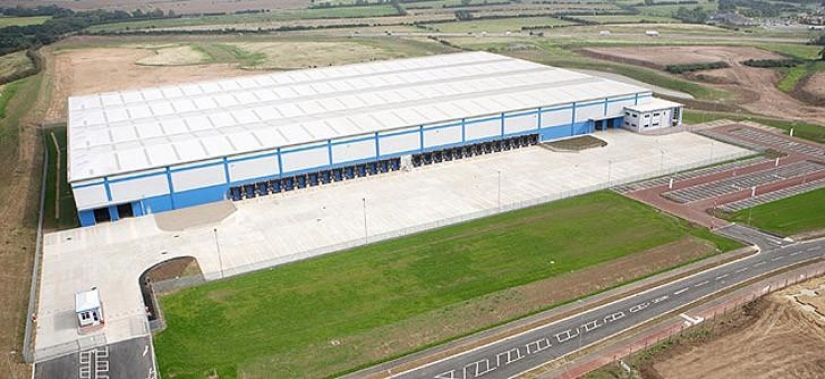
The Verne Global data center in Reykjavik uses the BMW carmaker for theoretical and empirical research. It is here, on a supercomputer, that the aerodynamics of new cars are calculated and the results of crash tests are analyzed. By moving the supercomputer from Germany to Iceland, the company has reduced carbon dioxide emissions into the atmosphere from 3,570 tons per year to zero. This was achieved thanks to geothermal and hydroelectric power plants feeding the new center: one geyser produces 10 megawatts of clean energy, and there are many geysers in the vicinity of Reykjavik. Such production, according to the company, does not harm the environment. Data center facilities are also available for rent to any company wishing to reduce its carbon footprint and save money.
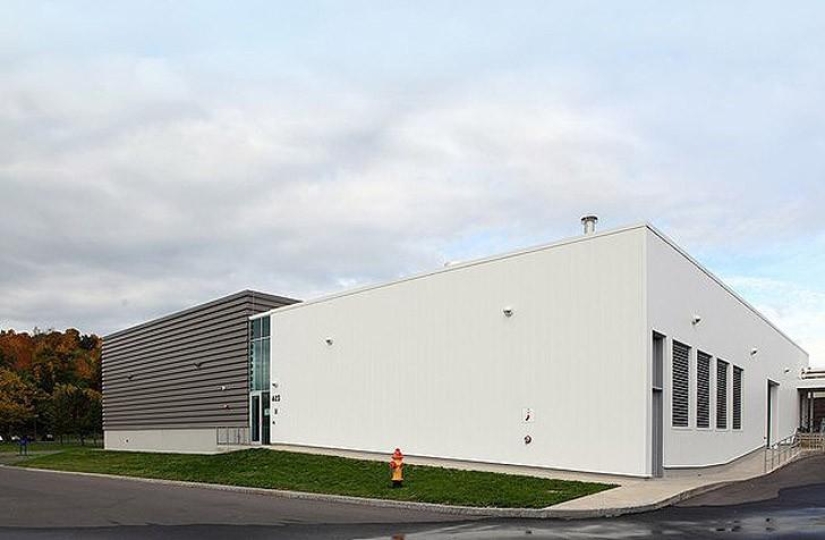
The harsh climate of northern England and the winds of the North Sea allow the Hewlett-Packard data center to work without air conditioning for most of the year, reducing costs by 40%. The air passes through two giant fans, then is filtered and chased to the floors, maintaining a constant temperature of +24 °C. Such a system was first used here, and although it increased the cost of construction by 6%, in four years of operation these costs have paid off. The same offshore winds provide the company with electricity: wind turbines nearby operate all year round, reducing carbon emissions into the atmosphere by more than half. In addition, rainwater from the roof is collected and used in humidifiers, and all the walls inside the data center are painted white to reduce the need for artificial lighting.
The IBM data center on the campus of Syracuse University in New York State is the result of an experiment by a famous technology company. IBM management agreed to allocate funds for the construction and provide equipment in the event that the designers manage to reduce energy consumption by half compared to a conventional center of the same capacity. In 2009, the construction was completed, which gave the university the opportunity to close the old IT center, located in the 100-year-old building. The data center is powered by its own gas-fired power plant that generates electricity using 12 microturbines. This design was developed specifically for this project, and its efficiency is 60% higher than that of conventional gas-fired power plants.
Recent articles

It's high time to admit that this whole hipster idea has gone too far. The concept has become so popular that even restaurants have ...

There is a perception that people only use 10% of their brain potential. But the heroes of our review, apparently, found a way to ...

New Year's is a time to surprise and delight loved ones not only with gifts but also with a unique presentation of the holiday ...